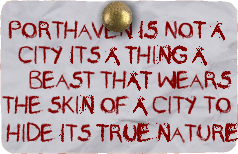The Eirstory of the World
When one starts a story it is beneficial to begin at the beginning. Beneficial, but not necessary. I could spend paragraphs regaling you with how the world itself was formed out of the cosmic chaos, and how order was forged by the solidification of concepts trapped until they hardened in the molds formed by minds and consciousness into words. I could delve into the rise and fall of civilizations from the Egyptians to the Romans to the dynasties of China and beyond. I could speak of the conflicts that brewed and boiled over, the deaths of so many on battlefields that span the globe. I could speak of all of these things and while they would be important to the story, beneficial, they would not be necessary in the telling of the tale.
Does the fact that the United States of America was founded on July 4, 1776 matter in the story? This has weight, yes, but it does not truly affect the story in any meaningful way. it is backdrop, window dressing. The fact that the founding was on July 4, 1776 but the last state admitted to the union did not happen until August 21, 1959 - a discrepancy of one-hundred and eighty-three years and forty-nine days is far more important. Time is always important, except when it is meaningless. It is the individual moments which have lasting impact upon the world. So what then is the best start of this story? Where to begin if not at the beginning? Neither the middle nor the end are the appropriate places. Instead we will begin this story with a man.
His name was Malachi Havenhurst and he left his home in England to journey across the Atlantic to the new world. Instead of settling somewhere on the east coast as many were, he instead led his family and his followers across the continent all the way to the west coast. Malachi was a man consumed by his own passions and beliefs. There were those who travelled with him who were uncertain of his goals. To them he pushed or pulled them onward by whatever means at his disposal, be it anger, flattery, bribery or faith. He had seen the place they were to build a town in his dreams, visions of a future as yet unrealized, and it was towards this he unceasingly strove. Upon arrival they began the toil of building homes. There were men and women who already lived on the land and rather than lord over them, Malachi instead treated them as his equal, broke bread and learned their language. It is said that he even married one and encouraged the same with other members of his family and followers.
Who said this? Malachi himself in one of his journals, the only account of that time which has lasted to the present day. Whether this account is truth or not depends upon if you believe in his words, or if you doubt that an arrogant Englishman could have anything resembling respect for the indigenous peoples of this land. And thus we arrive at the core at the beginning of the story. Truth is subjective and fact is malleable.
There are other tales, orally passed down by the tribes which live near, that things were not as peaceful as Malachi makes them seem. That the Havenhurst family and it's followers exploited the Native Americans and the city which was built came about because of their suffering and sacrifice and pain. In that way it is no different from many cities which dot the country. In so many other ways, the city Malachi Havenhurst founded and built, is as different as another world. An alien world in an alien universe. A city beyond the surface of the mirror, reflected darkly. A mirror amidst mirrors, lost within the myriad of reflections, the solidity of the actual indeterminate from the ephemeral of the illusionary.
Make no mistake, even though he died, Malachi's hand has guided his family and his followers across the years to the present day. The city that has been built was built because of his vision. Each street and district, each building and park exists due to the force of his will. Is this place then even a place? Does it exist as a location one may go, or does it exist as the mind of a man? Do the people who live there have their own lives or are they merely imaginary dots upon the landscape, moving because of the firing of neurons in the mind of a man long since dust? Perhaps a clue lies in the name of this city.
Porthaven.
A port, a place of refuge from storms. A haven, a place of shelter and safety. He sought to build a place that was safe, this is in keeping with what we know of the man. He and his family fled England due to persecution...but from whom and because of what reasons are never written down. Only that there were those back home who had driven them out, as if they were plague carriers. Regardless of the reasons why, the city was built and it grew and grew and burned and then grew more into the city that it is today. The beginning of the story is with the man and the city he built, but who is the focus of the story? Who are the protagonists who must then exist within this tale? Have patience, we will get to them soon enough. There is more to be told first, other beginnings, middles and ends. Beginnings which never start, middles which never progress and ends which lead into new beginnings. These must be seen to first.
Let us begin with The End of all Time.





This is great and also extremely readable!